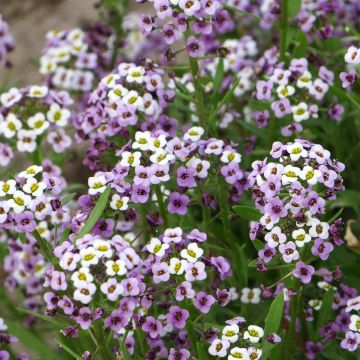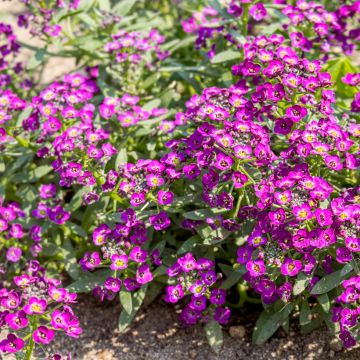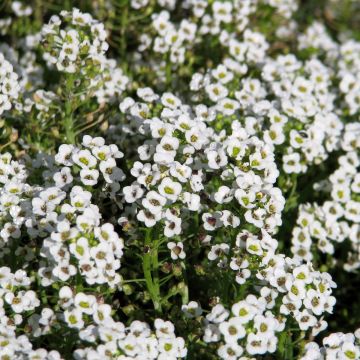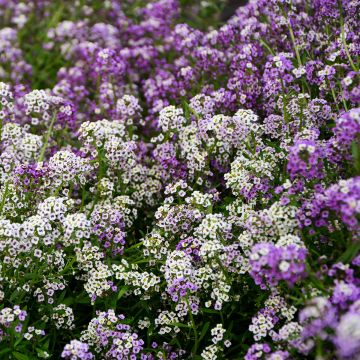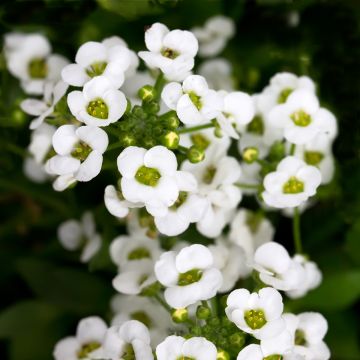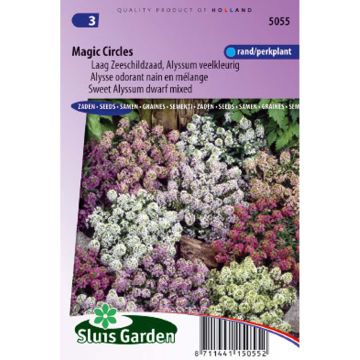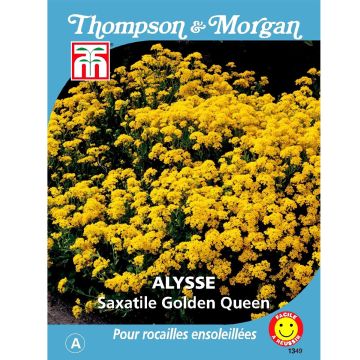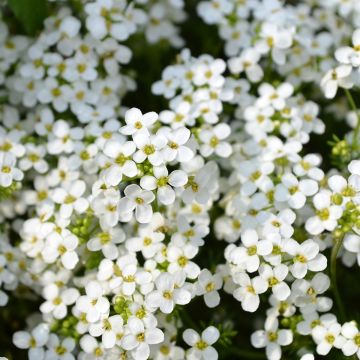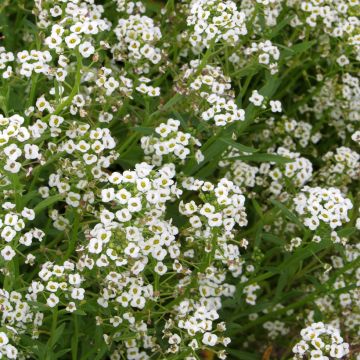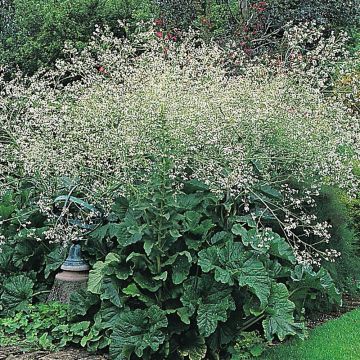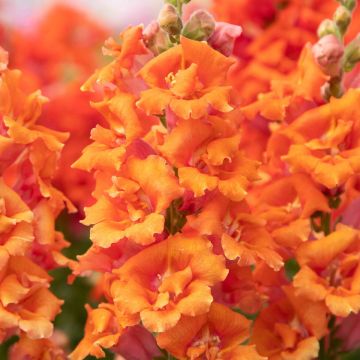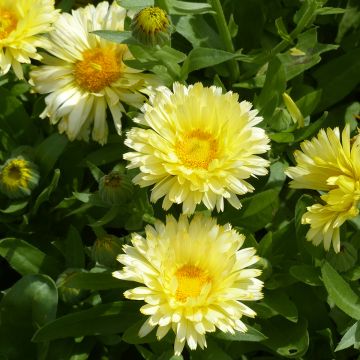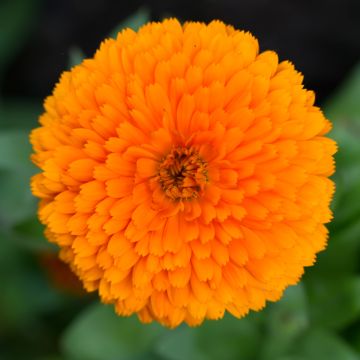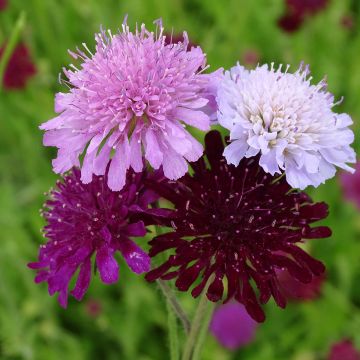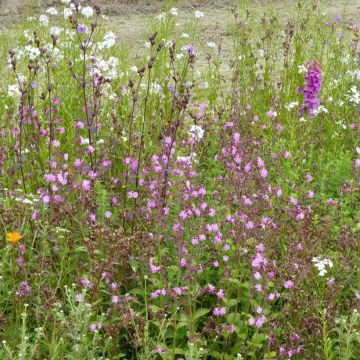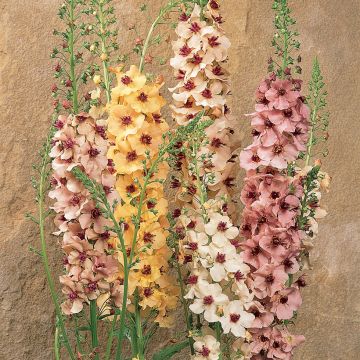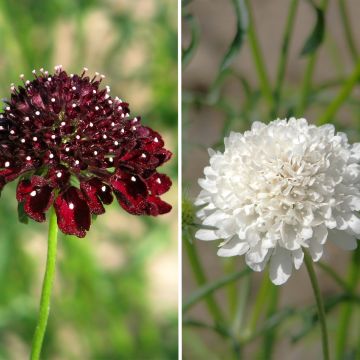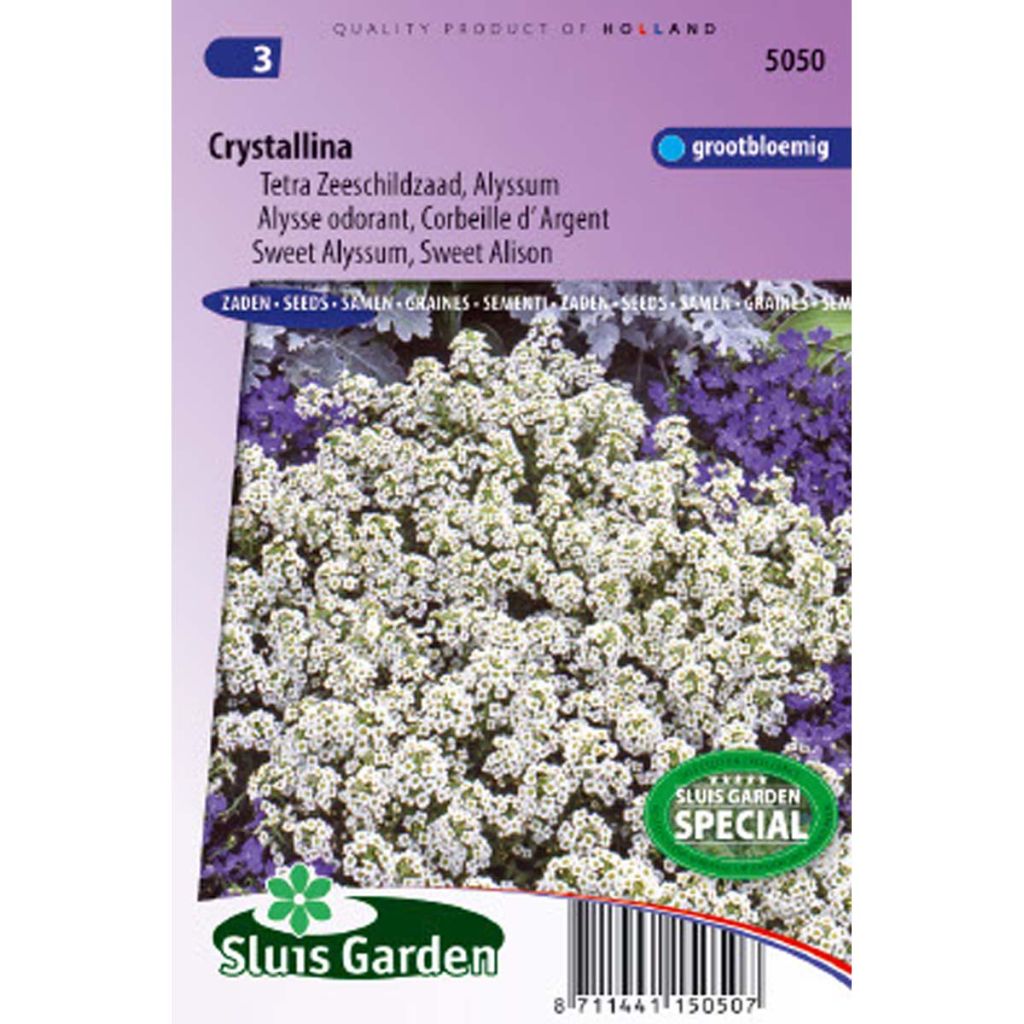

Graine d'Alysse odorant Crystallina - Lobularia maritima
Lobularia maritima Crystallina - Sweet Alyssum seeds
Lobularia maritima Crystallina
Sweet Alyssum
I've been sowing it for 3 years now, it self-seeds, we easily collect the seeds, it's gorgeous, it grows into beautiful long stems of 25-30cm (10-12in), and some stems even resist frost! You just need to cut the straw it forms during winter.
Anne-Laure, 21/04/2018
Special offer!
Receive a €20 voucher for any order over €90 (excluding delivery costs, credit notes, and plastic-free options)!
1- Add your favorite plants to your cart.
2- Once you have reached €90, confirm your order (you can even choose the delivery date!).
3- As soon as your order is shipped, you will receive an email containing your voucher code, valid for 3 months (90 days).
Your voucher is unique and can only be used once, for any order with a minimum value of €20, excluding delivery costs.
Can be combined with other current offers, non-divisible and non-refundable.
Why not try an alternative variety in stock?
View all →This plant carries a 6 months recovery warranty
More information
We guarantee the quality of our plants for a full growing cycle, and will replace at our expense any plant that fails to recover under normal climatic and planting conditions.
Would this plant suit my garden?
Set up your Plantfit profile →
Description
Lobularia maritima or Scented Alyssum Crystallina, also known as Sweet Alyssum, is an annual groundcover with very attractive flowering. Indeed, its multiple small flowers of pure white colour appear as early as June and continue until October. They are abundant, fragrant, and attract many insects.
This Alyssum has many features: its compact habit forms a ball of flowers that allows it to cover the edges of flower beds, but also to blend with hanging annuals and in containers. It easily fits in with plants that grow a little more vertically, thus filling their base. It is an annual that prefers a sunny exposure and adapts to various soils. This Sweet Alyssum will easily find its place everywhere: in the garden, in rock gardens, on walls, and in containers to add a touch of volume. You can sow it directly in situ, by broadcasting the seeds, as soon as the temperatures are mild, or start it undercover to then use it in all your pot or container compositions.
Its brilliant white colour will provide special lighting to certain areas of the garden. You can create patches of light by grouping the plants together, or even highlight the edges of flower beds by assembling them in a ribbon. It will also naturally fit in with other companions, regardless of their colour.
The Alyssum Crystallina is therefore an essential annual: it fits into all compositions, is very floriferous, and requires no maintenance.
Report an error about the product description
Flowering
Foliage
Plant habit
Botanical data
Lobularia
maritima
Crystallina
Brassicaceae
Sweet Alyssum
Cultivar or hybrid
Other Alyssum seeds
View all →Planting and care
Sweet Alyssum Crystallina is preferably sown under shelter in a seed tray from March onwards. If frost is still persistent in your region, wait until April as the seeds will prefer a temperature close to 18°C (64.4°F). Just cover the seeds with a thin layer of substrate that you will keep slightly moist. The seeds will germinate in about fifteen days. When the seedlings are large enough to be moved, you can separate them and place them in planters if the frost period is not over and keep them warm. Otherwise, you can plant them directly in the ground. You can also sow them directly in the soil from April, if your climate is mild, or in May if you still fear the cold. Once they have germinated, you can thin them out by removing any excess plants if necessary.
Sowing period
Intended location
-
, onOrder confirmed
Reply from on Promesse de fleurs
Similar products
Haven't found what you were looking for?
Hardiness is the lowest winter temperature a plant can endure without suffering serious damage or even dying. However, hardiness is affected by location (a sheltered area, such as a patio), protection (winter cover) and soil type (hardiness is improved by well-drained soil).

Photo Sharing Terms & Conditions
In order to encourage gardeners to interact and share their experiences, Promesse de fleurs offers various media enabling content to be uploaded onto its Site - in particular via the ‘Photo sharing’ module.
The User agrees to refrain from:
- Posting any content that is illegal, prejudicial, insulting, racist, inciteful to hatred, revisionist, contrary to public decency, that infringes on privacy or on the privacy rights of third parties, in particular the publicity rights of persons and goods, intellectual property rights, or the right to privacy.
- Submitting content on behalf of a third party;
- Impersonate the identity of a third party and/or publish any personal information about a third party;
In general, the User undertakes to refrain from any unethical behaviour.
All Content (in particular text, comments, files, images, photos, videos, creative works, etc.), which may be subject to property or intellectual property rights, image or other private rights, shall remain the property of the User, subject to the limited rights granted by the terms of the licence granted by Promesse de fleurs as stated below. Users are at liberty to publish or not to publish such Content on the Site, notably via the ‘Photo Sharing’ facility, and accept that this Content shall be made public and freely accessible, notably on the Internet.
Users further acknowledge, undertake to have ,and guarantee that they hold all necessary rights and permissions to publish such material on the Site, in particular with regard to the legislation in force pertaining to any privacy, property, intellectual property, image, or contractual rights, or rights of any other nature. By publishing such Content on the Site, Users acknowledge accepting full liability as publishers of the Content within the meaning of the law, and grant Promesse de fleurs, free of charge, an inclusive, worldwide licence for the said Content for the entire duration of its publication, including all reproduction, representation, up/downloading, displaying, performing, transmission, and storage rights.
Users also grant permission for their name to be linked to the Content and accept that this link may not always be made available.
By engaging in posting material, Users consent to their Content becoming automatically accessible on the Internet, in particular on other sites and/or blogs and/or web pages of the Promesse de fleurs site, including in particular social pages and the Promesse de fleurs catalogue.
Users may secure the removal of entrusted content free of charge by issuing a simple request via our contact form.
The flowering period indicated on our website applies to countries and regions located in USDA zone 8 (France, the United Kingdom, Ireland, the Netherlands, etc.)
It will vary according to where you live:
- In zones 9 to 10 (Italy, Spain, Greece, etc.), flowering will occur about 2 to 4 weeks earlier.
- In zones 6 to 7 (Germany, Poland, Slovenia, and lower mountainous regions), flowering will be delayed by 2 to 3 weeks.
- In zone 5 (Central Europe, Scandinavia), blooming will be delayed by 3 to 5 weeks.
In temperate climates, pruning of spring-flowering shrubs (forsythia, spireas, etc.) should be done just after flowering.
Pruning of summer-flowering shrubs (Indian Lilac, Perovskia, etc.) can be done in winter or spring.
In cold regions as well as with frost-sensitive plants, avoid pruning too early when severe frosts may still occur.
The planting period indicated on our website applies to countries and regions located in USDA zone 8 (France, United Kingdom, Ireland, Netherlands).
It will vary according to where you live:
- In Mediterranean zones (Marseille, Madrid, Milan, etc.), autumn and winter are the best planting periods.
- In continental zones (Strasbourg, Munich, Vienna, etc.), delay planting by 2 to 3 weeks in spring and bring it forward by 2 to 4 weeks in autumn.
- In mountainous regions (the Alps, Pyrenees, Carpathians, etc.), it is best to plant in late spring (May-June) or late summer (August-September).
The harvesting period indicated on our website applies to countries and regions in USDA zone 8 (France, England, Ireland, the Netherlands).
In colder areas (Scandinavia, Poland, Austria...) fruit and vegetable harvests are likely to be delayed by 3-4 weeks.
In warmer areas (Italy, Spain, Greece, etc.), harvesting will probably take place earlier, depending on weather conditions.
The sowing periods indicated on our website apply to countries and regions within USDA Zone 8 (France, UK, Ireland, Netherlands).
In colder areas (Scandinavia, Poland, Austria...), delay any outdoor sowing by 3-4 weeks, or sow under glass.
In warmer climes (Italy, Spain, Greece, etc.), bring outdoor sowing forward by a few weeks.






























